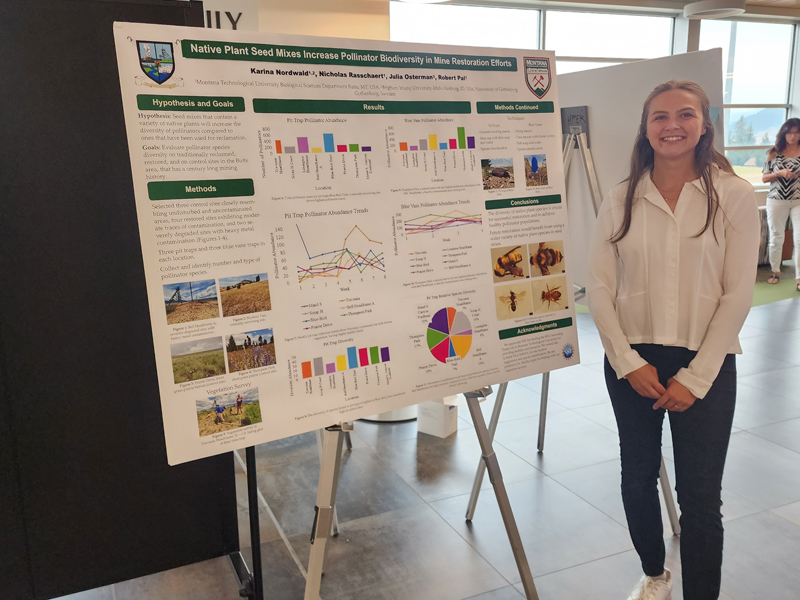Research Experience for Undergraduates (REU)
Unfortunately due to funding changes, the REU program for 2025 will be cancelled.
Interdisciplinary Research Experience in Environmental Science and Engineering
This National Science Foundation (NSF) funded Research Experience for Undergraduates (REU) offers a 10-week immersive research experience in environmentally focused science and engineering. Open to freshman through juniors, this program connects students from the Northwest US and broader US to hands on experience solving environmental problems. This program also includes development to enhance students professional skills, such as preparing and delivering technical writing and presentations. At the conclusion of the program students will have meaningful experience that is in demand as they continue their academic careers in graduate school or move into the workforce.
Program Information
- A stipend of $600 / week ($6000 total)
- Summer housing on the Montana Tech campus
- Travel reimbursement to and from Butte (up to $1000)
- A weekly meal stipend is provided for on- or off-campus dining options
The weeks will largely consist of faculty led laboratory based research, but numerous group activities are planned. These include field trips that explore environmental concepts around Montana, including a trip to a modern active mining operation and the world infamous Berkeley Pit, an abandoned ghost town to view the lasting consequences of environmental degradation, and the unique pristine thermal pools of Yellowstone National Park. It is expected that many students will not have substantial prior research experience. Students will participate in trainings and workshops that cover laboratory safety, research ethics, and numerous professional development opportunities. When combined with the individual research project, students completing this program will be well positioned for a career in an environmentally focused field.
Visit our frequestly asked questions page »
For more information on individual research projects, please visit the participating faculty information page.
2023 & 2024 REU Program
The 2024 REU program was a huge success! Students from around the United States participated in groundbreaking research supporting a diverse group of faculty. Students and faculty made major strides in research projects, with numerous students opting to apply to graduate program at Montana Tech and elsewhere. Congratulations and thank you to our 2023 and 2024 classes!

We are here to answer your questions, and connect you with the right resources to optimize research, growth, and discovery.
MUS 210 & MUS 211
(406) 496-4102
ResearchOffice@mtech.edu